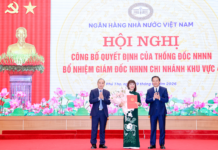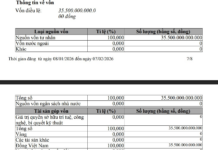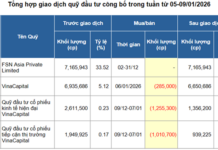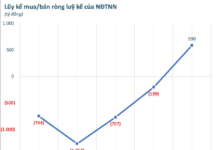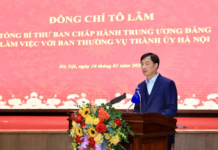The Ministry of Finance is seeking feedback on the draft Law on Investment (amended and replaced), expected to be submitted to the National Assembly at the 10th session (October 2025). Based on a review of its implementation, the drafting agency believes that amending and supplementing the Law on Investment is necessary. One of the proposed policy changes relates to regulations on conditional business and investment sectors.
According to the proposal, the list of conditional business and investment sectors specified in Appendix IV of the 2014 Law on Investment comprises 267 sectors. Currently, as stipulated in the 2020 Law on Investment (amended and supplemented by Law No. 90/2025/QH15), the number of conditional business and investment sectors has been reduced to 237.
Some conditions, such as compliance with planning requirements, business plans, and capital requirements, have been eliminated, making it easier for businesses to enter the market.
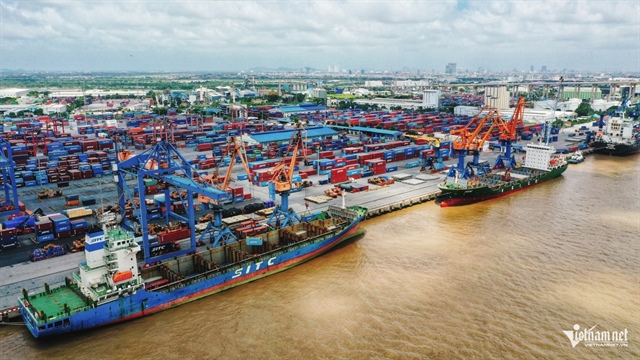
The Ministry of Finance proposes amendments to regulations on conditional business and investment sectors. Photo: Hoang Ha |
However, according to the Ministry of Finance, this reduction is not substantial, mainly due to the merging of sector names or the use of sector names with a broad scope of control. Many fields still apply a “prior permission” mechanism (requiring a license to operate) even though it is not necessary, such as building new or repairing inland waterway vehicles or producing helmets. This restricts freedom of business and creates barriers to market entry.
Some new sectors with potential risks to security, order, and community health are not designated as conditional business and investment sectors, making it challenging for state management agencies to regulate them. These sectors include personal data-sharing platforms and deepfake technology.
Three Proposed Amendments
The Ministry of Finance has proposed three amendments to the regulations on conditional business and investment sectors.
Option 1: The Law will only outline the principles for determining conditional business and investment sectors, defined as sectors where investment and business activities must meet necessary conditions for reasons of national defense, security, social order, social ethics, and community health. The Government will be authorized to issue a list of conditional business and investment sectors.
It is proposed that the principle be established that sectoral laws should not stipulate conditional business and investment sectors. Instead, these should only be defined in the Law on Investment or its guiding decrees to ensure a unified approach to restricting investors’ business rights.
A review will be conducted to propose the elimination of unnecessary, unreasonable, and obstructive business and investment sectors. A shift from prior permission to post-inspection will be implemented. Additionally, sectors and/or investment conditions that can be managed through technical standards and norms will be removed from the list. These include the business of building new, converting, repairing, and restoring inland waterway and seagoing vessels, and accounting services.
Option 2: Maintain the current principles for determining conditional business and investment sectors and continue to stipulate the list of these sectors in the Law on Investment. Review, amend, and supplement the list by proposing the elimination of sectors that are unnecessary and do not meet the conditions outlined in Article 7 of the Law on Investment.
Option 3: Maintain the current regulations.
Of the three options, the Ministry of Finance recommends Option 1.
This recommendation is based on Conclusion No. 119 of the Politburo, which provides guidance on legislative reform. According to this conclusion, legal provisions should be stable and long-lasting, focusing on framework and principle issues under the National Assembly’s authority. Practical issues that are subject to frequent changes should be delegated to the Government, ministries, and local authorities. Additionally, laws should generally not prescribe administrative procedures, processes, and dossiers, leaving these to be issued by the Government and ministries within their competence.
Therefore, refining the principles for determining investment conditions and authorizing the Government to issue a list of conditional business and investment sectors is deemed necessary.
Amending the list of conditional business and investment sectors should aim to eliminate unnecessary and unreasonable sectors and shift from a “prior permission” to a “post-inspection” mechanism. Sectors and investment conditions that can be managed through technical standards and norms should be removed from the list to improve the investment and business environment and ensure businesses’ freedom of business.
If Options 2 and 3 are chosen, the Ministry of Finance believes that existing issues will not be adequately addressed.
Nguyen Le
– 15:20 13/08/2025
The Future of Transportation in Hanoi: Vice President Proposes a Gas-Powered Motorcycle Ban in the City’s Heart
“The Vice President of the National Assembly emphasized the need for a well-planned roadmap and effective solutions for a green transition in the transport sector, particularly regarding the proposed ban on gasoline-powered motorbikes within Hanoi’s inner ring road.”
Crafting a Compelling Headline: Resurrecting the Abandoned Boeing at Noi Bai Airport
The Ministry of Construction has proposed an innovative idea to utilize the abandoned Boeing plane at Noi Bai Airport. In a recent letter to Deputy Prime Minister Tran Hong Ha, the Ministry suggested handing over the plane, which has been idle for 18 years, to the Vietnam Aviation Academy as an educational tool. This proposal offers a unique opportunity to enhance practical learning experiences for students pursuing aviation-related careers.
Dr. Tran Du Lich: The Real Estate Market is Like a ‘Business Class Only’ Flight
“The current state of the real estate market is akin to an airplane with only business and first-class seats, devoid of any economy options,” observes Dr. Tran Du Lich.






